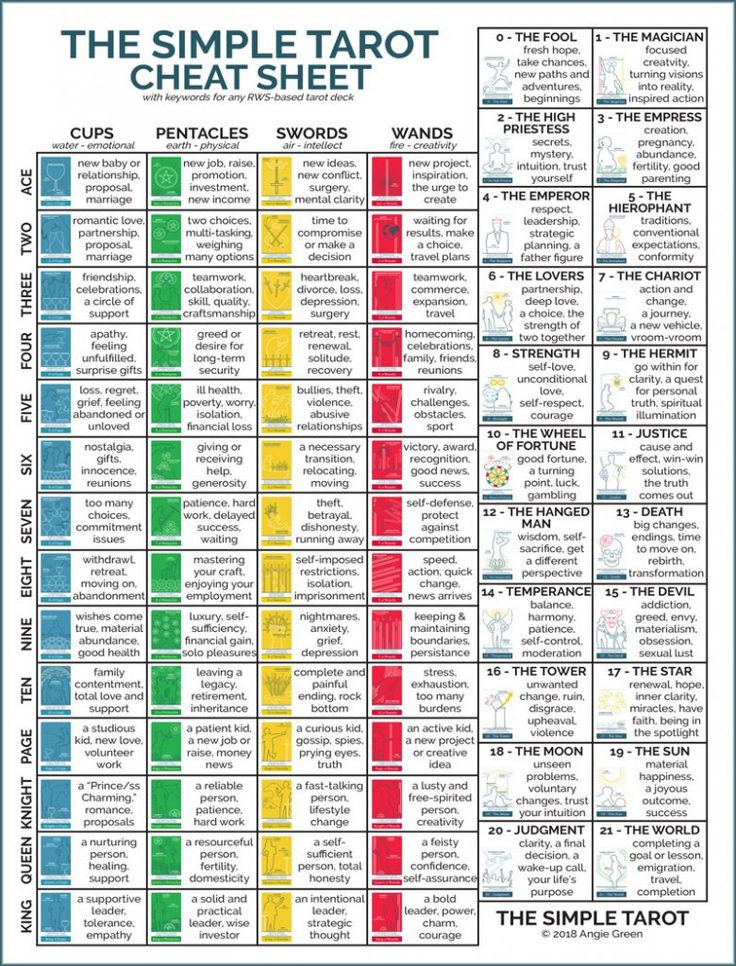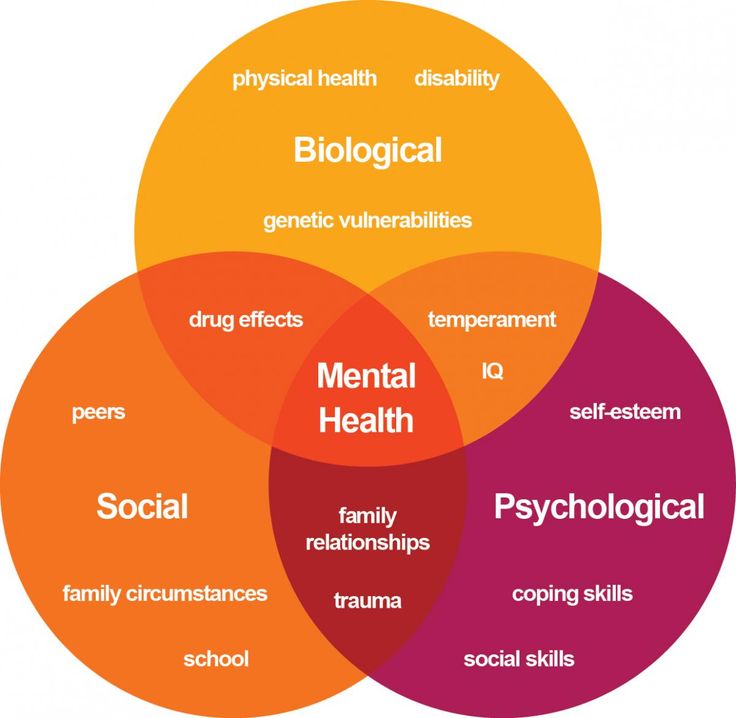Anger after breakup
How to Manage Your Anger After a Breakup
Going through a divorce or breakup is never easy, and it can be difficult not to feel hard done by. Anger and resentments towards the ex you once loved can build quickly.
The problem is that anger, while a useful emotion in many ways, left to run rampant is also a form of stress. It can play havoc with your adrenal system and digestive system and end up draining and exhausting you just when you need to collect your energies and focus on healing.
So while suppressing or denying your anger after experiencing a heartbreak is never a good idea, and examining why you feel so angry with the support of a coach or counsellor can lead to great revelations, you also need to find ways that stop anger towards your ex – and even your life for taking you to this place of pain – from controlling your days.
1. Awareness
You can’t change or let go of what you are denying, so it is first and foremost important to get honest with yourself about what you are really feeling.
How big is your anger, really? When did you last (if ever) feel so angry? Is this anger triggering other, older upsets for you? What is behind the anger – sadness, despair, fear? Awareness is the first step towards change and will help you to own your feelings, which is the key to letting them go.
And you’ll also have to get honest about how you might be trying to run away from your feelings. Are you turning to drugs, alcohol, or overeating? Are you overworking or overexercising to avoid how you feel?
Also pay attention to whether you are judging yourself for feeling angry. It’s common post-breakup to turn our anger towards ourselves, too, judging our feelings and thoughts, and blaming our feelings for making us feel bad.
Perhaps you are also judging yourself for not being ‘good enough’ to keep a relationship going, or feeling things are all your fault. What would happen if you just accepted that you feel low and upset, and decided to show yourself some compassion?
2.
 Get physical
Get physicalScience is increasingly showing a connection between the mind, body, and emotions. For some people, it can be helpful when managing anger to release it physically. This might mean bashing a pillow with a rolling pin or your fist, shouting and screaming where nobody can here you, or going for a long hard run. For other people a more calming physical exercise, like yoga, can help you feel balanced and centred even though you are processing anger.
3. Find ways to feel centred in the storm
Anger can make us feel so tense and distracted that it can be hard to get through our days, let alone when we are also dealing with sadness and then the practicalities of separating your life from that of your ex. It can be very helpful to find routes to feeling grounded.
This might involve time in nature, a physical exercise like yoga, or a few minutes a day spent deep breathing or journalling.
Mindfulness can be something that helps
. Involving present moment awareness, it helps you to stay with what is going on for you in the now, instead of being so distracted by the upset of the past and your worries for the future. It also allows you to really hear your thoughts and feelings as they arise.
Involving present moment awareness, it helps you to stay with what is going on for you in the now, instead of being so distracted by the upset of the past and your worries for the future. It also allows you to really hear your thoughts and feelings as they arise.
4. Learn the power of balanced thinking
Speaking of mindfulness, one of the great side effects it offers is helping us to choose what we think (and therefore what we feel, too, as thoughts create feelings). When we train our attention on what we are thinking, we can learn with practise to catch our thoughts fast enough that we can then decide whether to continue with a thought or instead choose another way of seeing things.
Hopefully we will choose a balanced way of thinking, instead of the extreme, black and white thinking it’s easy to fall prey to when life is challenging or we are upset. In psychology, such thinking is called ‘cognitive distortions‘. Balanced thoughts don’t involve words like ‘every’, ‘only’, and ‘forever’, but are thoughts that allow for possibility. Cognitive behavioural therapy (CBT) especially works to help you notice and change your cognitive distortions into more useful patterns of thought and behaviour.
Cognitive behavioural therapy (CBT) especially works to help you notice and change your cognitive distortions into more useful patterns of thought and behaviour.
And when you listen to your thoughts in a mindful way, might be surprised to find that sometimes it’s your own thoughts creating and triggering your feelings of fury, as opposed to anything your ex really did in the past. At the end of the day, a lot of our negative feelings are an interpretation of what we think happened, as opposed to anything based on real fact. Mindfulness helps you to catch yourself having such distorted thoughts as well as having angry thoughts, and with practice helps you gain enough control you can consciously decide whether you want to continue to have certain angry thoughts – or not.
Your anger can in this way become a sort of guidepost. Every time you feel anger, you can ask yourself, what am I thinking or feeling here? Is it how my situation really is, or how I am perceiving it? And how could I choose to see it differently, what balanced thought could I have instead?
5. Talk it out.
Talk it out.Friends, no matter how well meaning, are sometimes too personally invested in our situation to be a good listener or to be honest with us. Their own desire for us to not be upset can stop us from feeling comfortable expressing the depth of our anger and sadness. Also, they might agree with outrageous things we say or do out of anger and hurt because it seems easier then upsetting us further by telling us when we are out of line.
The trouble is, to heal, we need to be able to be honest with ourselves both about what we are feeling and the choices we are now making.
Sometimes outside help can be the best thing. This might be in the form of a support group, an online forum, a coach, or a counsellor. The wonderful thing about working with a professional is that they are not invested in our situation and offer a completely unbiased perspective. They are also trained to listen fully, which in itself can be deeply healing and lead to you coming up with your own realisations that help you process and step through your anger.
Why struggle on your own when you don’t have to? When we are fresh from a breakup of a marriage or relationship we can feel so alone and awful we feel we don’t deserve help, or that we are now ‘destined’ to have to do things alone so should just ‘get used to it’. Don’t let such negative thoughts stop you from getting the support you need process your anger and heal your heart.
Have you managed your emotions after a breakup? Share your tips below, we love hearing from you.
Marina Pearson is an author, facilitator, and speaker on the subject of Effortless Living. She supports professionals and entrepreneurs to transform stress into ease and results.
(Photos by Nicolas Raymond, Michael Theis, B Rosen)
The 7 Stages Of A Breakup: How To Get Through & Move On
Breaking up with someone vs. getting broken up with.
If you're the person who was broken up with, it might take you a bit longer to accept what's happened. But it's also not easy to be the person who makes the decision to end a relationship.
But it's also not easy to be the person who makes the decision to end a relationship.
For that person, there may have been a period of time when they were deliberating their decision and trying to figure out what they wanted to do. "It's still very painful to break up with someone," licensed clinical social worker Jordan Aura-Gullick, LCSW, explains to mbg, "and if you're the person who did the breaking up, you probably already resolved your reasons why." This can make it a bit easier to move through phases like shock and denial, but the breakup can still feel jarring.
Both parties will move through the stages at their own pace, which will look a bit different for everyone.
How long does it really take to get over a breakup?
There's no definitive answer to how long it takes to get over a breakup, according to both Gullick and clinical psychologist Kristina Hallett, Ph.D., ABPP. "It depends on how long you were involved, how strongly you felt, how invested you were, and how important it was," Hallett notes.
She adds that typically, it's likely to be a couple of months, though if it was a very long-term relationship, it can take a lot longer. On top of that, where the relationship was at the time of the breakup is significant. Did everything seem fine and normal? Or was it becoming clear things were starting to steadily fall apart? It can feel easier to get over if both of you saw it coming but may take longer if it was a total surprise.
Gullick notes that how we relate this person to our own sense of self-worth and self-esteem will play into how long it can take to get over a breakup. Things like "how much each of you relied on the other for approval, acceptance, validation, identity, etc." are important to take into account. If you really believed this was your one chance for a soul mate, Hallett adds, it can make it feel particularly unsettling and painful.
And just as a note, Hallett says the idea that it takes half the time you were with someone to get over them is simply too generalized, and really, it's going to look different for everyone.
Advertisement
This ad is displayed using third party content and we do not control its accessibility features.
Stages of a breakup:
Stage 1: Shock
This stage is particularly pertinent if you were the one who was broken up with and if you didn't see it coming. The shock of a breakup is all about pain, disorganization, and confusion, Gullick tells mbg. You may try to rationalize it and feel an immense need to understand what went wrong. "Often, it's bewildering," she says.
Hallett also notes that this stage comes with a lot of pain, and it will be very focused on the "why." Asking things like "Why did this happen?" or "How could they do this to me?" in an attempt to understand isn't uncommon. "People feel that they're desperate for answers, or they're looking for closure," she says. "They just don't understand it, and the question of 'Why, why, why?' keeps coming up. This is a first response."
Advertisement
This ad is displayed using third party content and we do not control its accessibility features.
Stage 2: Denial
Shock and denial are closely interrelated, as you grapple with the reality of what's occurred. Hallett explains that as people move into denial, "they're looking for information—they tend to hyper-focus on things like, 'She or he said they'd love me forever, or they promised we were going on vacation.'"
In denial, people bring up all sorts of things their partner said that they thought indicated their relationship was going to continue. "They're arguing why that other person shouldn't have broken up with them," she adds, "and that tends to lead to a denial."
Denial can involve trying to convince yourself your partner didn't mean it or that they'll change their mind. "We're also trying to rationalize it with our logical brain, but things don't often make sense in the denial and shock phase," Gullick adds.
Stage 3: Bargaining
This is the stage that can lead to "relapse" or going back to your ex, Gullick says. In an attempt to make things better and/or make the problem go away, people may start to bargain—with themselves or with their ex.
Hallett notes questions like "What do I need to do differently?" and "Can we just have another chance and try again?" may be tempting to ask. We'll think about all the what-ifs, and we often blame ourselves for where the relationship went wrong. "In this stage, people care a lot about the 'if only,'" she notes, adding you may "put up with stuff you previously weren't OK with because you're feeling such a yearning to be with that person."
Until things have cooled down, some time has passed, and both of you have a chance to get some clarity and closure, it's best to avoid reaching out during this phase. Again, we aren't always thinking logically in these early stages, and if you want to be able to move on and heal, both of you will need adequate space.
Advertisement
This ad is displayed using third party content and we do not control its accessibility features.
Stage 4: Anger
Once you've moved through shock, denial, and bargaining, the reality of the breakup will begin to set in, "And the person often does have a lot of anger about what's occurred," Hallett explains. This stage can come from a lot of different places depending on the context of the relationship.
This stage can come from a lot of different places depending on the context of the relationship.
Are you angry because your partner cheated? Angry because the breakup was out of the blue? Angry with yourself—or them—for not investing more in the relationship? It can even be a combination of these things. Gullick says things like jealousy and competitiveness can rear their head in this stage, whether these feelings are directed at your partner or at yourself. Ultimately, though, anger is often an emotion that surfaces before we can face deeper emotions, like hurt, disappointment, grief, shame, helplessness, and so on.
Stage 5: Sadness and grief
As the anger starts dissipate, the true grieving process will start to begin. At this point, you're slowly accepting the reality that the breakup happened, though you may not have necessarily accepted that it's truly over. To grieve a relationship is completely normal and to be expected. After all, not only did you lose your S. O., but in a way, you lost the person you were with them—or at least, the way the person made you feel.
O., but in a way, you lost the person you were with them—or at least, the way the person made you feel.
Gullick notes you also are dealing with the loss of the certainty the relationship provided, as far as future plans, mutual friends, their family, and anything else you shared. She notes this can spur feelings of depression, emptiness, and apathy. Things like self-doubt and desperation can also creep in, as well as loneliness and abandonment.
This is a particularly difficult stage to move through, but the good news is, when you start processing these feelings of sadness and grief, you're able to start healing and moving on. Leaning on your support system, prioritizing your own needs and self-care, and even seeing a mental health professional can help you get through this difficult time.
Advertisement
This ad is displayed using third party content and we do not control its accessibility features.
Stage 6: Acceptance
Ah, yes, the light at the end of the tunnel is in sight. When you start to accept the breakup, things will start to feel more positive, and you may even start to recognize that the relationship wasn't the only one for you. Gullick notes that acceptance can be "anywhere from apathetic surrender to true hope and moving past that person."
When you start to accept the breakup, things will start to feel more positive, and you may even start to recognize that the relationship wasn't the only one for you. Gullick notes that acceptance can be "anywhere from apathetic surrender to true hope and moving past that person."
It's important to keep this spectrum of acceptance in mind, she adds, because it's not always a linear path. "You can feel pretty resolved about it, and then other moments you're right back in denial or bargaining."
Nevertheless, you'll know you're moving through the acceptance stage when you find yourself letting go and disengaging mentally from this person. You're "thinking about yourself as an individual rather than considering or thinking about your ex," Gullick says. And as Hallett adds, you're able to "see new beginnings, hope, and the fact that there could be someone else out there—they weren't the only fish in the sea."
Stage 7: Moving on
Beyond just accepting the breakup, moving on is a bit of a different story. "You really know you've moved on when it's not just acceptance, it's true disengagement from this person," Gullick says. You're able to redirect your focus from the relationship and that person even more so than when you first started to accept it, and you're "really focusing on yourself, your own needs, and your own self-worth," she adds.
"You really know you've moved on when it's not just acceptance, it's true disengagement from this person," Gullick says. You're able to redirect your focus from the relationship and that person even more so than when you first started to accept it, and you're "really focusing on yourself, your own needs, and your own self-worth," she adds.
You've finally stopped checking their social media, you're not constantly thinking about them, and you wish the best for them, knowing you won't be a part of that. As you move through this phase, you may feel like you're ready to put yourself out there again and date someone new, which is great! Just try to be aware of whether you're "rebounding," or truly ready to start a new relationship.
Gullick says when you get to a place where you're OK with being alone, you're no longer caught up in your ex, and you can truly stand on your own emotionally, you'll know you're ready to give love another shot.
The bottom line.
It's important to note that these stages don't necessarily go in order for everyone, and you may jump around or backtrack throughout the grieving process. "Sometimes someone can be super angry right away, then a couple of days after being angry, all of a sudden it seems to hit, and then they're in denial," Hallett notes for example.
"Sometimes someone can be super angry right away, then a couple of days after being angry, all of a sudden it seems to hit, and then they're in denial," Hallett notes for example.
But however these stages look for you, she adds that all of them can be worked through. Breakups are tough and call for plenty of self-love and lots of support from your loved ones. It may feel awful, and it may take some time, but both of you will get through it and come out on the other side with lessons learned, and hopefully, a willingness to try again when the time is right.
5 stages of breaking up a relationship | PSYCHOLOGIES
After her divorce from her husband, Anna at first managed well on her own, but about a year later, when her husband remarried, she was "covered". “I acted like crazy, obsessed. Followed the new wife of her ex on social networks, completely out of control. It was bad for everyone: for myself and for our children, ”she admitted to her psychologist, Karen Nimmo.
A woman - in Nimmo's opinion, otherwise quite mature and adequate - was frightened by the strength of her emotions, especially the anger she felt despite the fact that the separation was a mutual decision. However, this often happens when the former partner decides to move on: old wounds reappear, a trace of the past experience of abandonment, rejection or loss. nine0003
It seems to us that we are stuck and will never learn to do without someone who was once close to us. This is not true.
The stages of breakup suggested by Karen Nimmo echo the stages of grief formulated by psychologist Elisabeth Kübler-Ross (denial, anger, trading, depression, resignation). As with the latter, you need to remember that each situation is unique and people can go through these stages in a different sequence.
1. Emotional shock
An emotionally charged stage during which everything is possible: tears, anger, anxiety, and if the separation was a complete surprise for one of the parties, then also confusion. But even if the breakup was a mutual decision, it’s quite normal to be sad, because something that you two built together has ended, and the circumstances of your life have changed.
But even if the breakup was a mutual decision, it’s quite normal to be sad, because something that you two built together has ended, and the circumstances of your life have changed.
Feeling angry is also normal, especially if your partner cheated on you. There may even be thoughts of revenge and a desire to follow the former (fortunately, the matter is usually limited to virtual surveillance). Some feel guilty (especially if they were not completely honest with a partner) or ashamed, afraid of what "people will say." The future appears unclear, and worries about this are also quite normal. nine0003
What to do?
Accept your emotions, give yourself time to grieve and mourn (you can do this in the company of loved ones with whom you feel comfortable), while trying not to do things that you may later regret.
Do not force yourself to smile from morning to evening. Remember: painful feelings are just feelings, and one day they will subside. If children still unite you with your ex, try to keep communication to a minimum, to a discussion of the "logistics" of children's movements. And in any case, unsubscribe from him or her on social networks and do not go to the page. nine0003
And in any case, unsubscribe from him or her on social networks and do not go to the page. nine0003
2. Adaptation
At this stage, you gradually get used to being outside of a relationship, which is especially difficult if you have lived with a partner for a long time. The mood can jump: you either enjoy freedom and time for yourself, or you are sad because of loneliness and unclear prospects.
Loneliness is especially acute if you have children and they go to the former for the weekend or vacation. At this very stage, the client Karen Nimmo “broke down”, realizing that her ex-husband did not go through the same thing as her. Upon learning of his new marriage, the woman immediately installed a dating application for herself, although, in truth, she was not yet ready for a new relationship. nine0003
What to do?
Find healthy ways to help yourself and practice them regularly. It can be anything: meditation, reading, walking, journaling, exercise, creativity, cooking - as long as it helps. And be sure to plan your free time in advance, especially weekends and vacations. It is also helpful to set a new goal that has nothing to do with the romantic sphere, and start moving towards it.
And be sure to plan your free time in advance, especially weekends and vacations. It is also helpful to set a new goal that has nothing to do with the romantic sphere, and start moving towards it.
3. Self-doubt
By the time this stage begins, the main emotions have already subsided, but doubts float to the surface - this is especially characteristic of those who have been rejected. We start asking questions: Was I a good partner? Would anyone want to be with me again? What if I never meet anyone? Can I trust someone again? Can I trust myself if this is how I choose my partners? nine0003
Because of these doubts, we are afraid to build new relationships: the old ones “didn't work out”. Often at this moment, old unprocessed traumas begin to speak in us.
What to do?
It's time to get to know yourself better and remind yourself that there is good in you as a person and partner. Remember all the good things you have done for your loved one and your relationship. It's also helpful to reflect on what you should do differently next time so you don't repeat unhealthy patterns. nine0003
It's also helpful to reflect on what you should do differently next time so you don't repeat unhealthy patterns. nine0003
At this point, you can begin to meet new people, as long as you are confident in your ability to face possible rejection without taking it too personally.
4. Acceptance
We finally begin to accept the situation as it is, and even enjoy life on good days. At times, sadness, anger, and self-doubt may return, but overall, we feel pretty good. We don't care what our ex does, who he dates. We are again confident that we are worthy of new relationships, we live a rich life: work, interests, friends, leisure, we look to the future with optimism. nine0003
What to do?
Congratulate yourself: the path to this phase was not easy, but you made it. Continue to get to know yourself as a person and figure out what you want from future relationships - this will be very useful to you in later life.
5. Growth
You have studied yourself and your previous relationships: if they were unhealthy, now you understand why. You no longer dwell on relationships, perceive them as a part of life, even an important one. You are either quite comfortable on your own, or you are enjoying a new romance. nine0003
You no longer dwell on relationships, perceive them as a part of life, even an important one. You are either quite comfortable on your own, or you are enjoying a new romance. nine0003
5 stages of a breakup that you need to go through to move on
People need to love and be loved: we all meet, fall in love and begin to build relationships. Despite this, each of us, at least once in our lives, experienced a separation from a person, the future without which we could not imagine. As painful as the process of parting may be, in some respects this stage is, unfortunately, inevitable. Yulia Mitrokhina, a psychologist and transformational coach, talks about the five stages that everyone faces after leaving a relationship behind. nine0003
All stages pass differently for each person, but the fact that they exist in the process of each parting is an indisputable fact. For some, depression is severe and protracted, while others survive this period easier - it all depends on the person himself, his psychotype, worldview, perception, stress tolerance, level of emotionality, attachment to the person and the duration of the relationship, including. This process is absolutely normal and natural, like, for example, the growth of a child or a change in the weather. Life does not stand still, and every emotion has the right to exist ( see also: Exercise "Iceberg of anger": how to quickly get rid of negative emotions).
This process is absolutely normal and natural, like, for example, the growth of a child or a change in the weather. Life does not stand still, and every emotion has the right to exist ( see also: Exercise "Iceberg of anger": how to quickly get rid of negative emotions).
First stage - denial
This unpleasant stage begins with denial of what is happening. A person says to the events that happen to him "no", "how could this happen", "it's impossible", "I'm dreaming about it." He begins to resist and go against fate. For a certain time of relationship, a person got used to being with his partner, to be near, to live. It was his comfort zone, and suddenly there is a breakup. The reasons may be different: from a quarrel to treason, but in any case, the current situation does not change from this. It also happens that a person does not immediately recognize the loss, taking everything not seriously. When the realization comes that all this is true, as a rule, the stage of denial begins. nine0003
nine0003
The second stage — anger and anger
During this period, emotions such as anger at a partner are clearly manifested, which result in scandals and resentments with a recollection of all the bad things that happened, an incessant stream of accusations and discontent. This stage can be compared with the phrase “from love to hate - one step, and back - infinity”: partners want to take revenge and act far from the best way towards the former. Without this, not a single breakup occurs, even if the relationship normalizes in the future, you will somehow have to go through the stage of anger ( see also: 5 ways to control your anger).
Third stage - hope
After the first two stages, a person, having calmed down a little, passes to the stage of hope, which, in fact, does not last very long - this is the shortest stage. The hope settles in the mind that "suddenly, something else will happen." At this stage, a certain light appears at the end of the tunnel, a person flatters himself with illusions that “maybe we needed it”, “this is just such a period” and “now everything will work out, and we will be together again”. In fact, these are small echoes of love and memory of what could be in the future. But all this is quickly forgotten, and very soon the next emotional outburst sets in. nine0003
In fact, these are small echoes of love and memory of what could be in the future. But all this is quickly forgotten, and very soon the next emotional outburst sets in. nine0003
Fourth stage - depression
This stage is the most difficult and each person goes through it in his own way, depending on the psychotype and self-perception. If we consider even a divorce by mutual consent, when both spouses have come to a balanced decision, it causes depression to a lesser or greater extent. Sadness and loss, an acute lack of support and a sharp change in the usual way of life. Whatever the reason for the breakup, you experienced strong feelings, and this person was the closest to you. Despite the pain and frustration, it is very important to experience and live through all these emotions, because only then can you move on to the next stage. nine0003
The fifth stage is humility and acceptance
Time heals, and this is indeed true. The stage of humility gradually brings a person to the realization that everything has passed, and it is no longer possible to change the past, nothing can be done about it.














